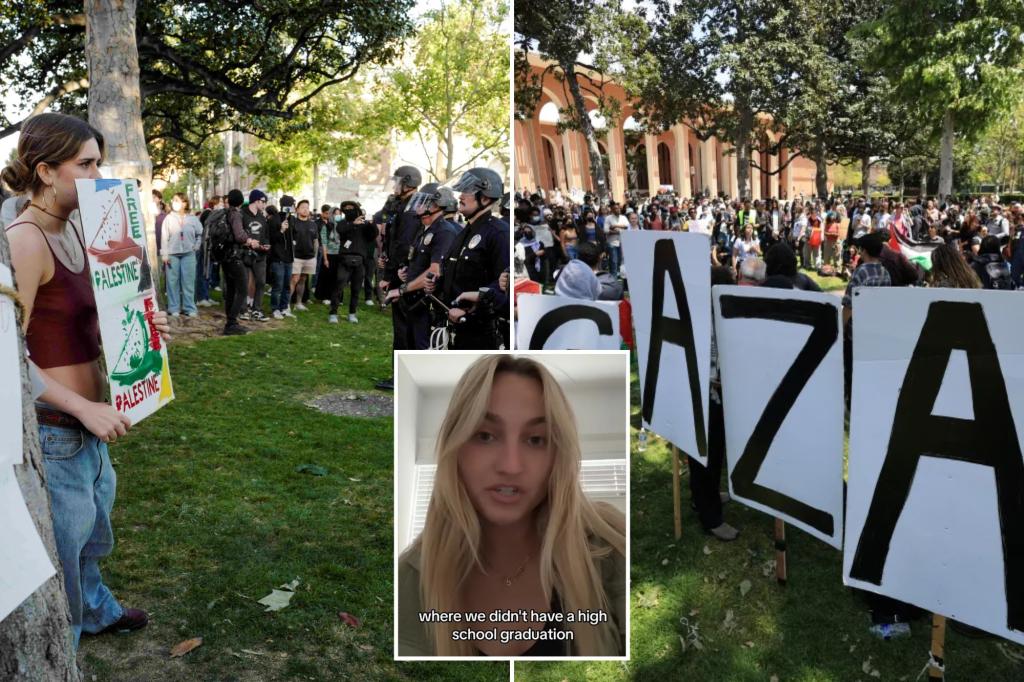A University of Southern California senior recently expressed disappointment and sadness over the cancellation of the school’s “main stage” graduation ceremony following anti-Israel protests on campus. The student, Gracie Flynn, who had already missed her high school graduation due to the pandemic, found it upsetting that her college graduation was also affected. Nearly 100 student demonstrators were arrested during the protests, with one being charged with assault with a deadly weapon.
Flynn shared her feelings in a TikTok video that garnered over 2.6 million views, with her and her roommates being left in tears following the cancellation of the graduation ceremony. She expressed her frustration about missing out on two important milestones due to events out of her control. Despite understanding the recent protests on campus, Flynn believes that there could have been a different way to handle the situation rather than canceling the graduation ceremony for a class that had already missed their high school graduation.
The decision to cancel the 65,000-person graduation ceremony at USC was attributed to safety concerns and newly implemented measures that would not allow guests to be processed in a timely manner. In a message to the school community, USC expressed understanding of the disappointment but emphasized their efforts to ensure that the commencement activities would still be academically meaningful, memorable, and uniquely USC. This cancellation came on the heels of another controversy involving the cancellation of a speech by the valedictorian over security concerns related to allegations of anti-Semitic and anti-Zionist rhetoric on social media.
The cancellation of the graduation ceremony, as well as the recent protests on campus and related controversies, have left many students feeling a sense of loss and disappointment. The series of events has resulted in frustration among the student body, particularly as it has affected important milestones such as graduation ceremonies and speeches. The impact of these disruptions on the mental health and well-being of students, as evidenced by Flynn and her roommates’ reaction to the news, highlights the emotional toll that such circumstances can have on individuals.
The events at USC serve as a reflection of the broader societal tensions and conflicts that have been playing out on college campuses and in communities across the country. The intersection of political, social, and cultural issues can create challenges for institutions like universities in navigating complex situations and balancing the needs and perspectives of various stakeholders. The cancellation of events, security concerns, and the response to protests underscore the difficult decisions that schools must make in addressing controversial issues and ensuring the safety and well-being of their students and community.
As the university works to address the fallout from recent events, including the cancellation of the graduation ceremony and controversies surrounding speeches, there is an opportunity for reflection and dialogue on how best to move forward. By engaging with students, faculty, and community members in discussions about the events and their impact, USC can work towards healing divisions, rebuilding trust, and creating a more inclusive and supportive campus environment. While the challenges faced by the university are significant, they also present an opportunity for growth, learning, and ultimately, a stronger and more resilient community.


